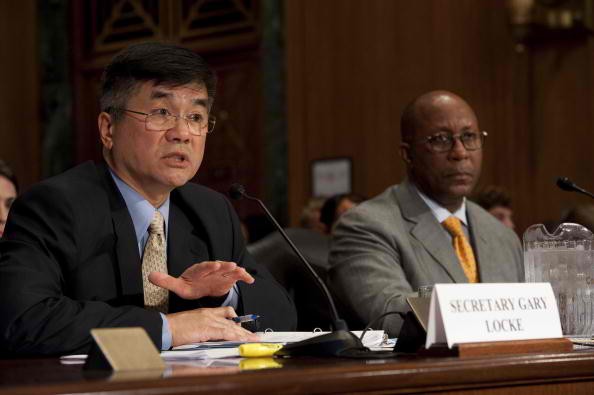China has denounced the report released by a United States congressional panel proposing to U.S. solons that China's state-owned enterprises (SOEs) should be prevented from acquiring American firms, China Daily reported.
Geng Shuang, a spokesman for the Chinese Foreign Ministry said the report is based on "prejudices and stereotypes" as he stressed that "a fair and good environment for Chinese investment" is important for the trade relations of the two countries.
On Wednesday, Nov. 16, the U.S.-China Economic and Security Review Commission released its annual report which suggests that Chinese SOEs should be barred by the U.S. Congress from acquiring or gaining control of companies in the U.S.
"The report has again revealed the commission's prejudices and stereotypes against China," Geng told a daily news conference in Beijing. He did not elaborate on his comments about the report, which he called a "cliche."
Geng also called on other countries to be fair with Chinese companies, which are asked to comply and abide by local laws when they invest in other countries.
According to Geng, the trade and economic cooperation between China and the U.S. is closely intertwined, which makes the relationship important to both of them.
"The healthy, stable development of China-U.S. trade and economic ties is in line with the fundamental interests of both countries and their people. I believe that the U.S. side will consider the fundamental interests of its own people and adopt a policy that is conducive to bilateral trade cooperation," he said.
The U.S. Committee on Foreign Investment had been asked by 12 senators earlier this month to deny the proposal of a Chinese aluminum company to purchase U.S. aluminum products, on claims that it would jeopardize the U.S. defense industrial base.
The move came as the trade and foreign policy agenda of newly elected Donald Trump is being prepared by its transition team and candidates for key economic and security positions are being selected. China had been frequently attacked by Trump during the campaign, with threats to impose high tariffs.
Experts, however, noted that the advisory panel's report is not legally binding.
Li Haidong, a professor of U.S. studies at China Foreign Affairs University, observed that nearly all of the U.S. commission's reports on China are negative.
"The U.S. should stop treating normal investment as a political and national security issue. Although some U.S. political elites call for imposing restrictions on China's investment, proposals are different from concrete deeds," Li said.
According to Li, it is Trump's top priority to improve the economy and provide jobs and "trade and economic cooperation with China is especially important in this regard."
Meanwhile, Tao Wenzhao, a researcher of Sino-U.S. relations at the Chinese Academy of Social Sciences, said that since "the commission is just a sub-organization of Congress," he does not believe it will affect the U.S. trade policy.
Next week, Vice-Premier Wang Yang is set to attend the 27th China-U.S. Joint Commission on Commerce and Trade in Washington, DC.



























